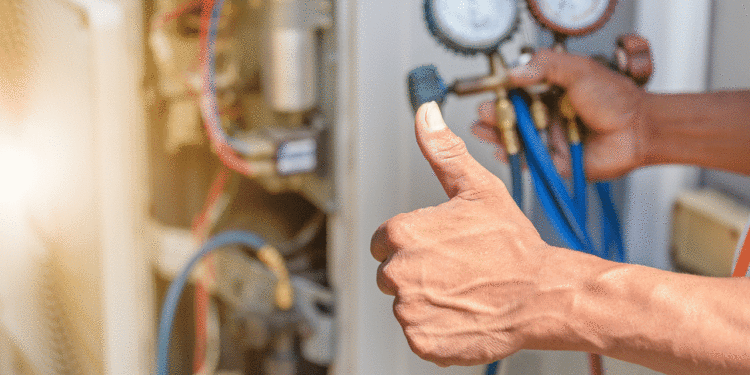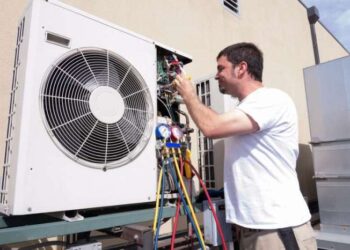Unlock the secrets to a well-maintained HVAC system with our comprehensive guide on HVAC tune-up. From improving efficiency to extending the lifespan of your system, this topic delves into the importance of regular maintenance and how it can benefit you in the long run.
Explore the key components of an HVAC tune-up, discover DIY tips for homeowners to keep their systems running smoothly, and learn about the optimal frequency for tune-ups. Get ready to elevate your HVAC knowledge!
Importance of HVAC Tune-up
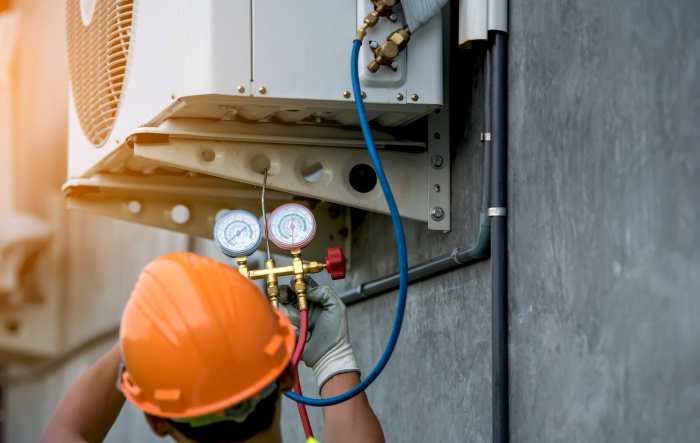
Regular HVAC tune-ups are essential for maintaining the efficiency and longevity of your heating, ventilation, and air conditioning systems. By scheduling routine maintenance, you can prevent potential issues and ensure that your HVAC system operates at its best. This not only saves you money in the long run but also provides a comfortable and healthy indoor environment.
Preventing Potential Issues
- Regular tune-ups can identify and address minor problems before they escalate into major issues, such as leaks, faulty components, or inefficiencies in the system.
- Proper maintenance can help prevent breakdowns during peak usage seasons, ensuring that your HVAC system functions when you need it the most.
- Cleaning and inspecting components regularly can prevent the buildup of dust, debris, and mold, improving indoor air quality and reducing the risk of respiratory issues.
Cost Savings in the Long Run
- By investing in regular HVAC tune-ups, you can improve the energy efficiency of your system, leading to lower utility bills over time.
- Extending the lifespan of your HVAC system through maintenance can delay the need for costly repairs or premature replacements, saving you money on major expenses.
- Regular maintenance can also help maintain the manufacturer's warranty on your HVAC equipment, ensuring that you are covered in case of any unexpected issues.
Components of an HVAC tune-up
Regular HVAC tune-ups involve a comprehensive inspection and cleaning of various components to ensure optimal performance and efficiency. By addressing key parts of the system, technicians can identify potential issues early on and prevent costly repairs down the line.
Filters
One of the essential components checked during an HVAC tune-up is the air filter. A dirty or clogged filter can restrict airflow, causing the system to work harder and consume more energy. By replacing or cleaning the filter, technicians can improve airflow and enhance overall system efficiency.
Coils
Both the evaporator and condenser coils are inspected and cleaned during a tune-up. Over time, these coils can accumulate dirt and debris, reducing their ability to transfer heat efficiently. Cleaning the coils helps maintain proper heat exchange and prevents system breakdowns.
Blower Motor
The blower motor is responsible for circulating air throughout the HVAC system. During a tune-up, technicians check the motor's operation and lubricate moving parts to ensure smooth functioning. A well-maintained blower motor can improve airflow and enhance comfort levels in your home.
Ductwork
The ductwork is inspected for leaks, blockages, or damage that can compromise airflow and indoor air quality. Sealing leaks and repairing ductwork can prevent energy loss and ensure that conditioned air reaches all areas of your home efficiently.
Refrigerant Levels
Proper refrigerant levels are crucial for the cooling function of your HVAC system. Technicians will check refrigerant levels and inspect for any leaks that could lead to decreased efficiency or system malfunctions. Maintaining optimal refrigerant levels is essential for peak performance.
DIY HVAC tune-up tips
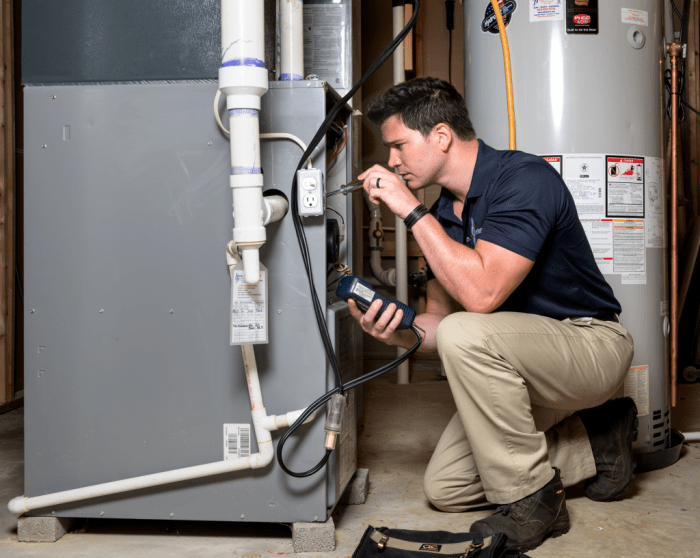
Regular maintenance is key to keeping your HVAC system running efficiently. Here are some simple tasks that homeowners can perform to maintain their HVAC system between professional tune-ups.
Cleaning or Replacing Filters
One of the most important tasks you can do yourself is cleaning or replacing your HVAC filters. Clogged filters can restrict airflow and make your system work harder, leading to increased energy consumption and potential damage. Here's a step-by-step guide:
- Turn off your HVAC system.
- Locate the air filter - it is typically found behind a removable panel on the unit.
- Remove the filter and inspect it for dirt and debris.
- If it's dirty, either clean it by vacuuming or washing (if reusable) or replace it with a new filter.
- Make sure to install the filter in the correct direction, following the arrows on the frame.
- Turn your HVAC system back on.
Remember to check and replace your filters every 1-3 months, depending on usage and the type of filter.
Safety Measures for DIY HVAC Maintenance
While performing DIY maintenance on your HVAC system, it's important to prioritize safety. Here are some safety measures to consider:
- Always turn off the power to your HVAC system before starting any maintenance tasks.
- Wear protective gear, such as gloves and safety glasses, especially when dealing with cleaning agents or sharp objects.
- Follow manufacturer instructions and guidelines for maintenance procedures.
- Do not attempt any repairs that are beyond your skill level - it's always best to call a professional for complex issues.
Frequency of HVAC tune-ups
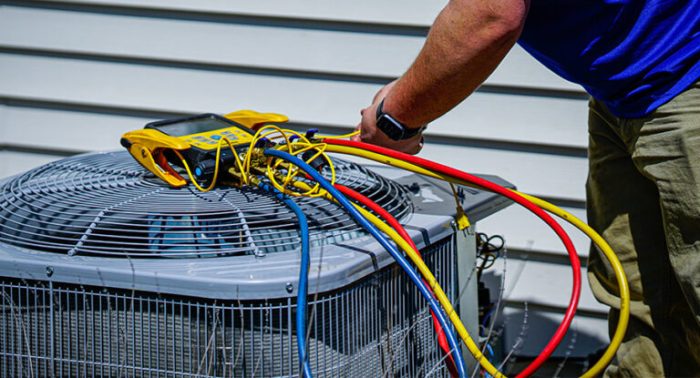
Regular HVAC tune-ups are essential for maintaining optimal performance and efficiency of your heating and cooling systems. The frequency of tune-ups can vary depending on several factors, including climate, system age, and usage patterns. It is important to have a maintenance schedule in place to ensure your HVAC system operates smoothly year-round.
Factors Influencing Tune-up Frequency
- Climate: Extreme temperatures or high humidity levels may require more frequent tune-ups to keep the system running efficiently.
- System Age: Older HVAC systems may need more frequent tune-ups to address wear and tear issues and prevent breakdowns.
- Usage Patterns: If your HVAC system is used frequently or runs for extended periods, more frequent tune-ups may be necessary to prevent performance issues.
Maintenance Schedule Guidelines
While the exact frequency of HVAC tune-ups may vary based on individual circumstances, a general guideline for maintenance schedules is as follows:
| Type of HVAC System | Recommended Tune-up Frequency |
|---|---|
| Heating System (Furnace) | Annual tune-up before the start of the heating season |
| Cooling System (Air Conditioner) | Annual tune-up before the start of the cooling season |
| Heat Pump | Bi-annual tune-ups before the start of the heating and cooling seasons |
Closing Summary
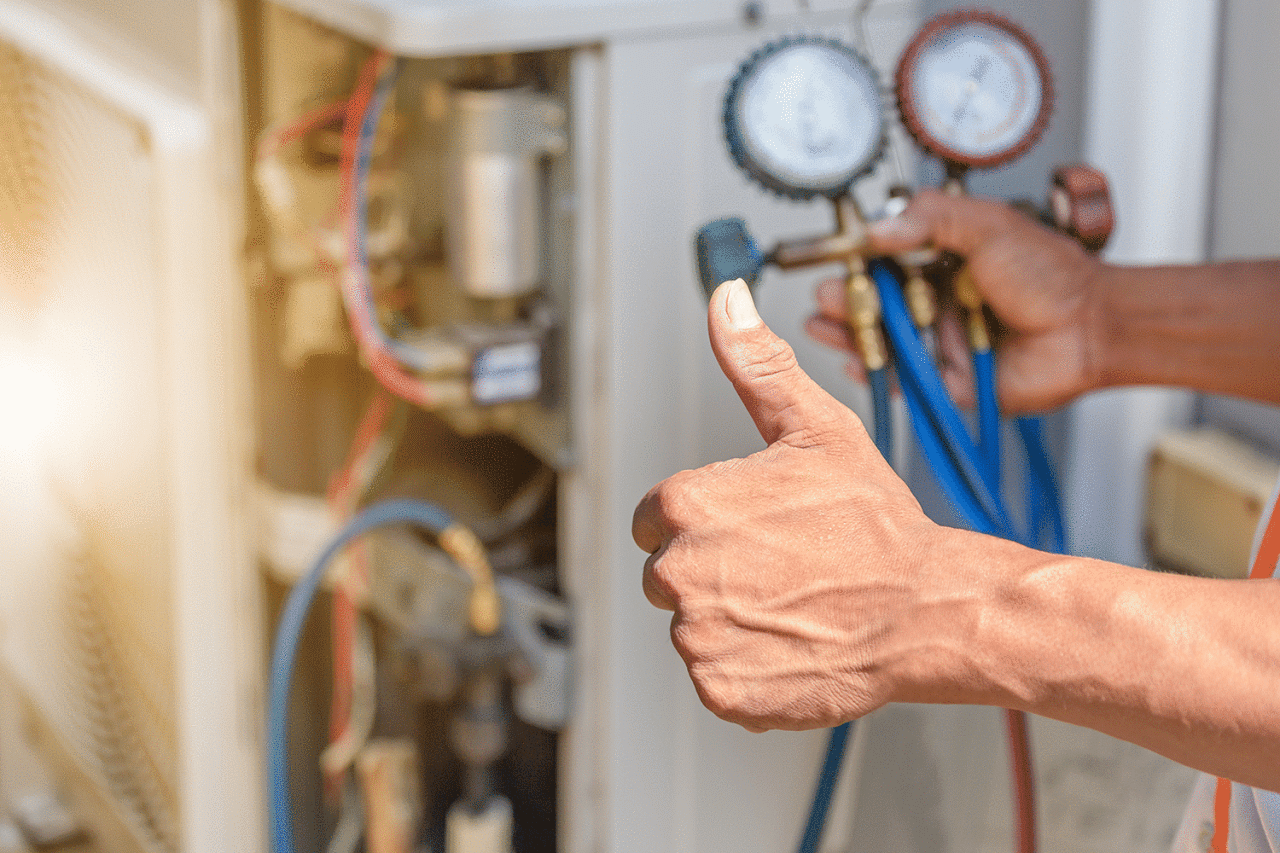
In conclusion, HVAC tune-ups are the key to a healthy and efficient system. By staying proactive with maintenance, you can avoid potential issues, save money, and breathe cleaner air. Keep your HVAC system running smoothly with regular tune-ups and enjoy the benefits it brings to your home.
FAQ Section
How often should I schedule an HVAC tune-up?
It is recommended to get your HVAC system tuned up once a year to ensure optimal performance and efficiency.
What are some signs that indicate my HVAC system needs a tune-up?
Common signs include strange noises, uneven heating or cooling, increased energy bills, and poor air quality.
Can I perform my own HVAC tune-up tasks?
While some tasks can be DIY-friendly, it's best to leave complex procedures to professional technicians to avoid any safety risks.

